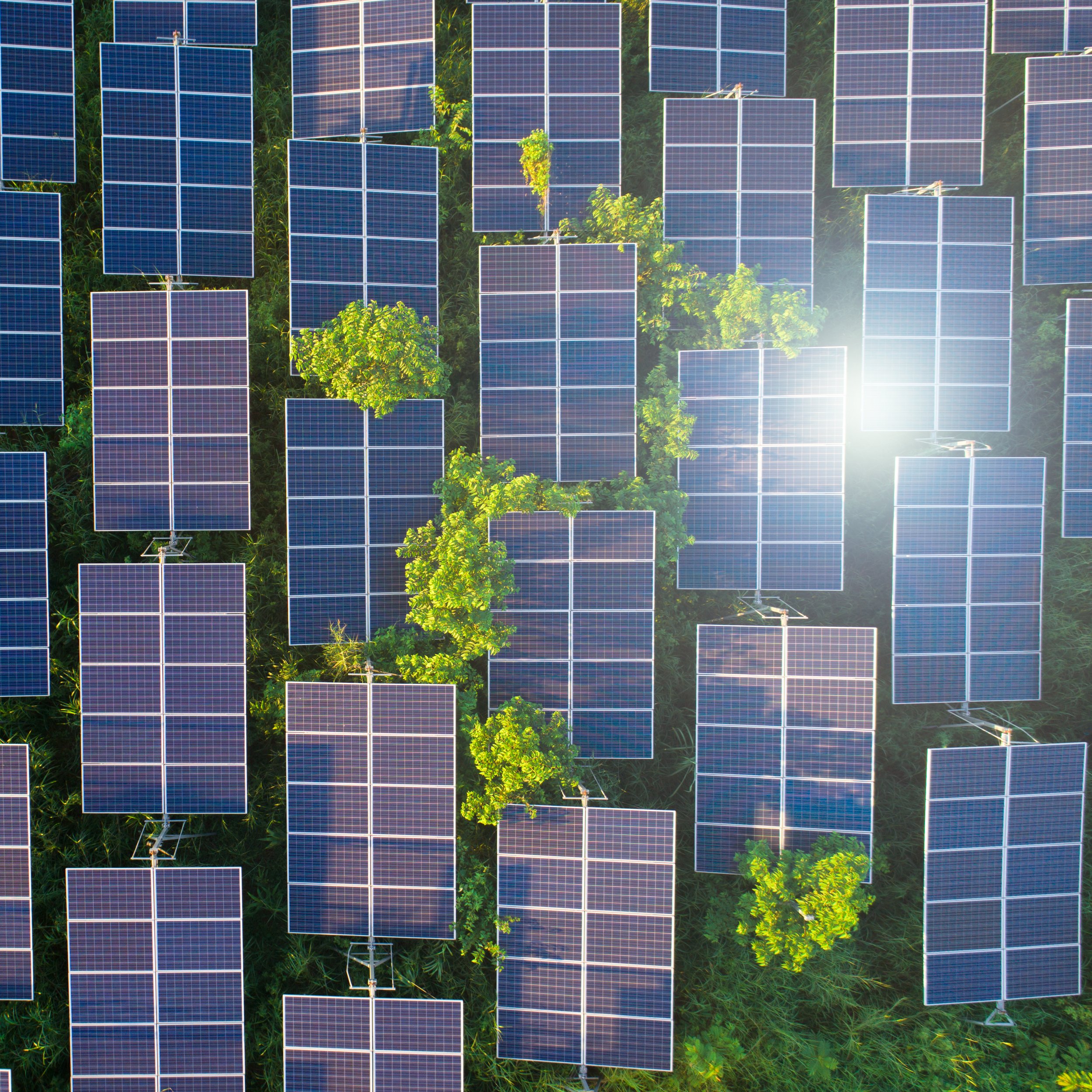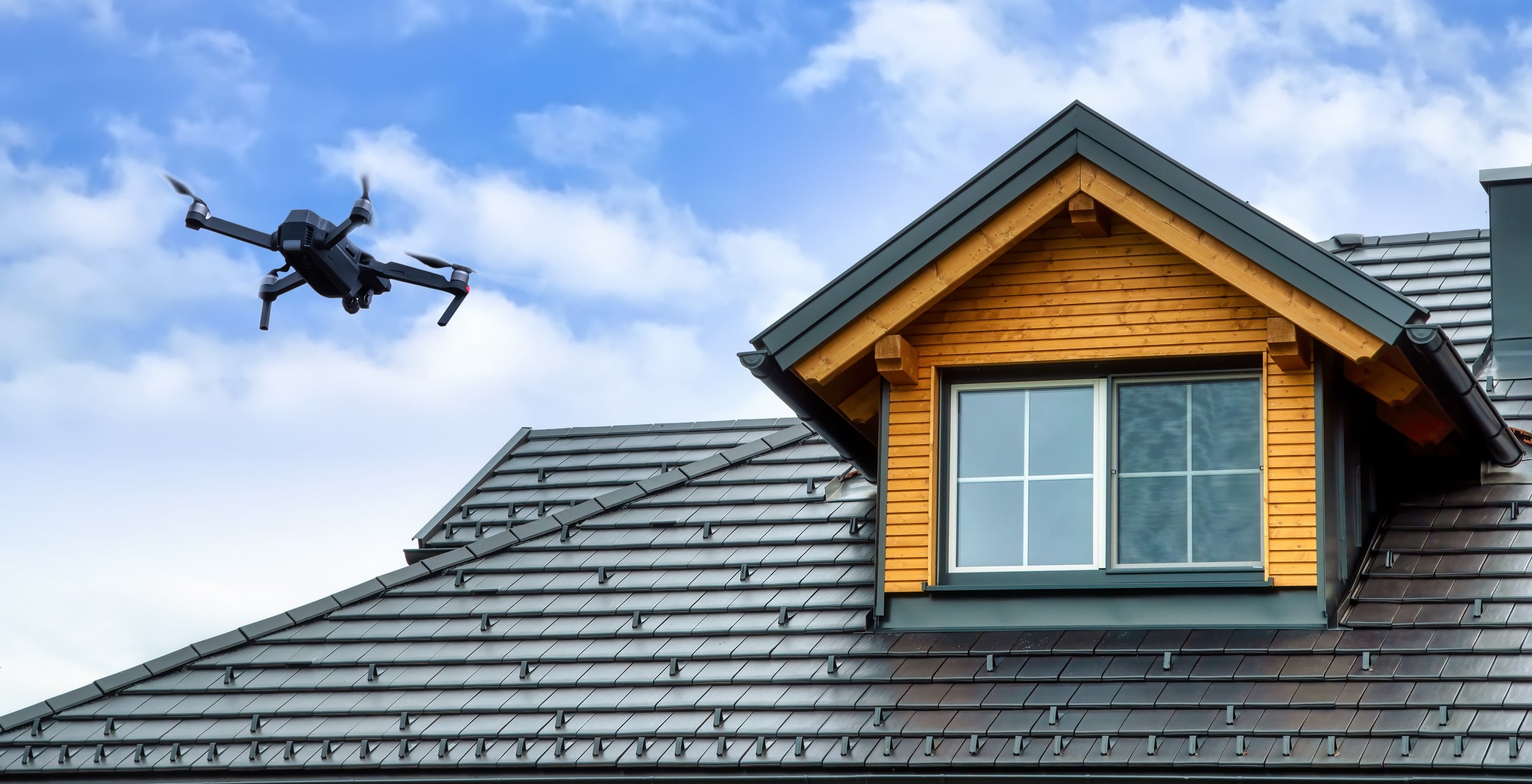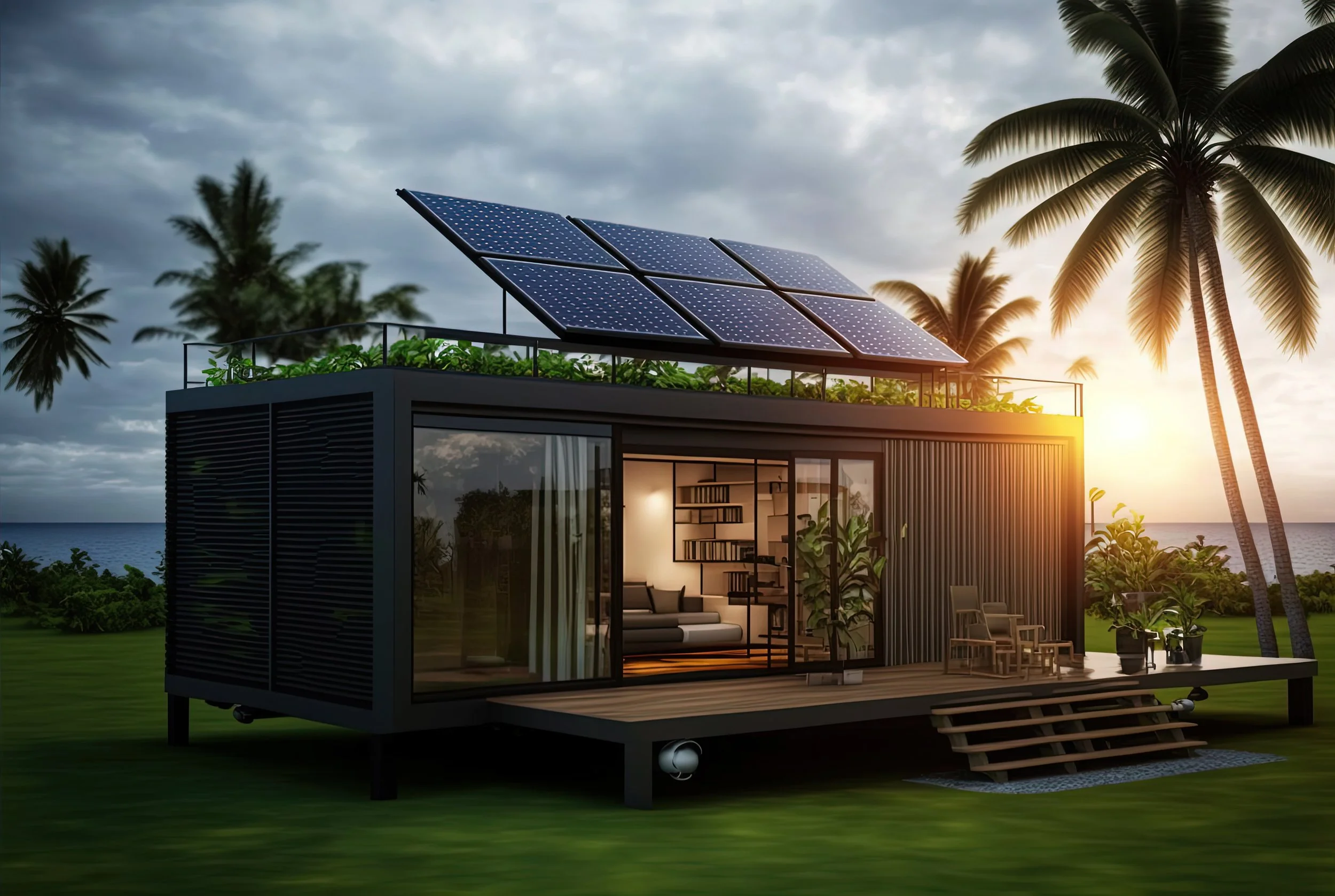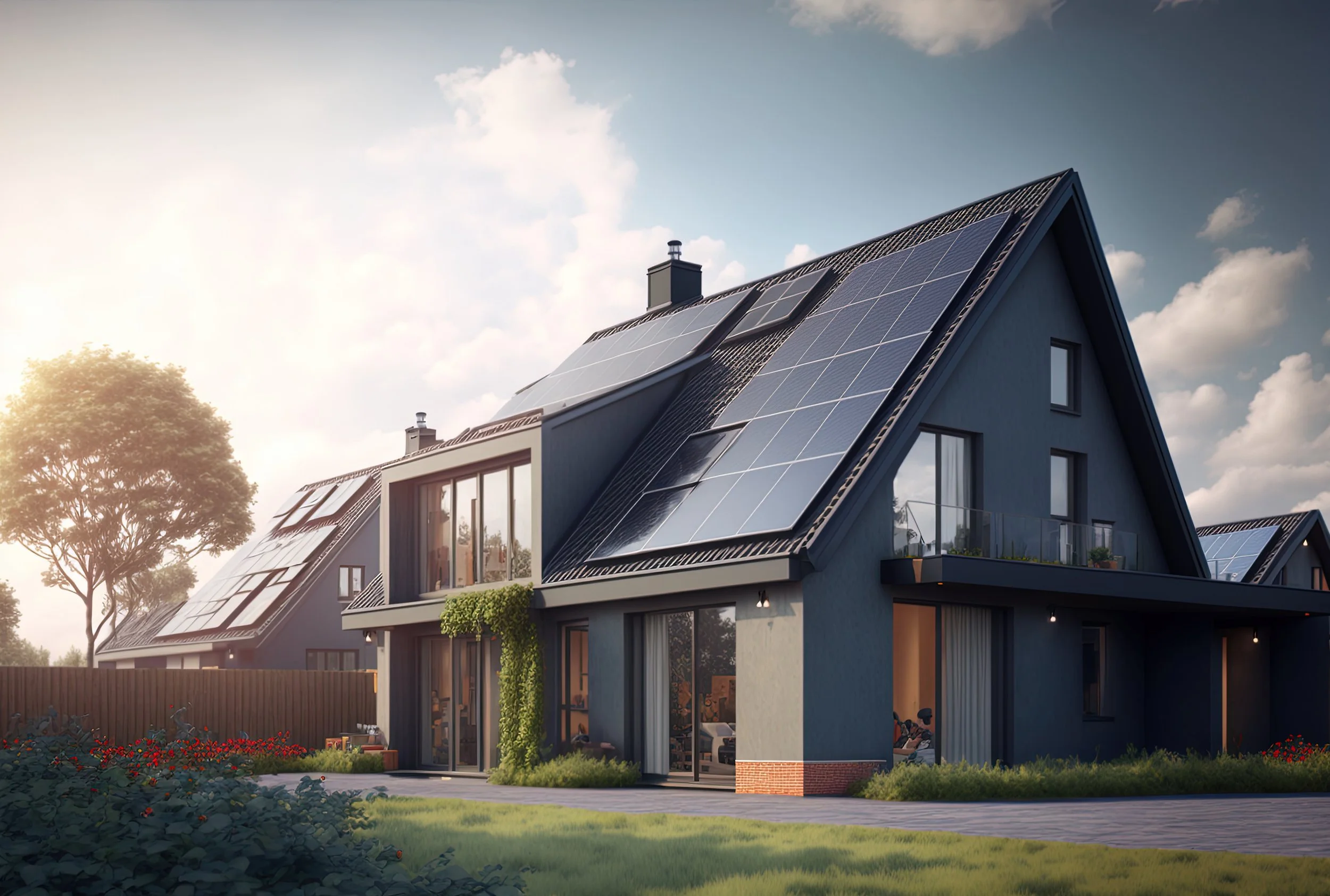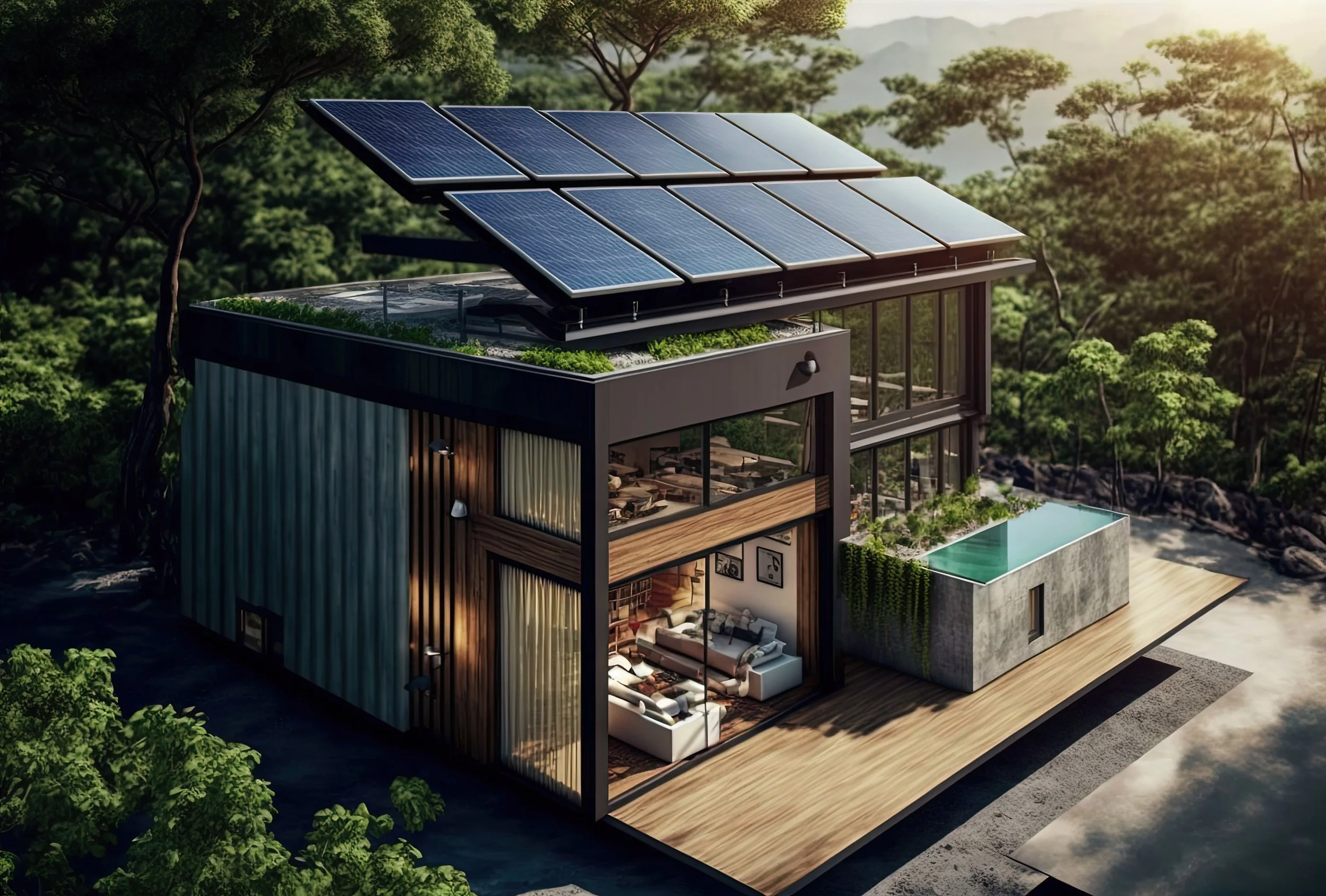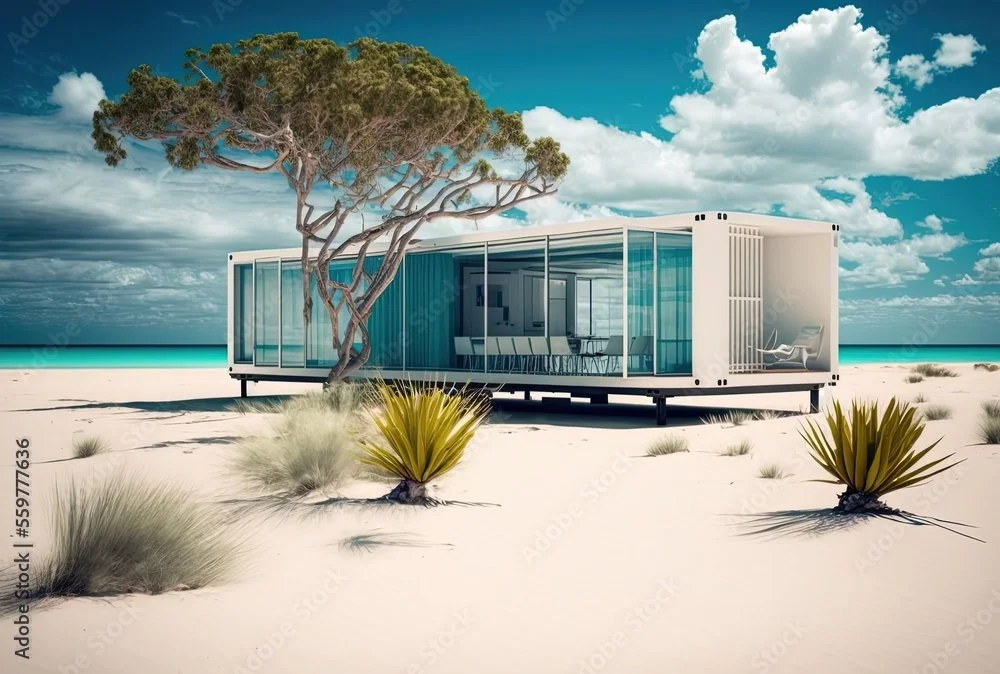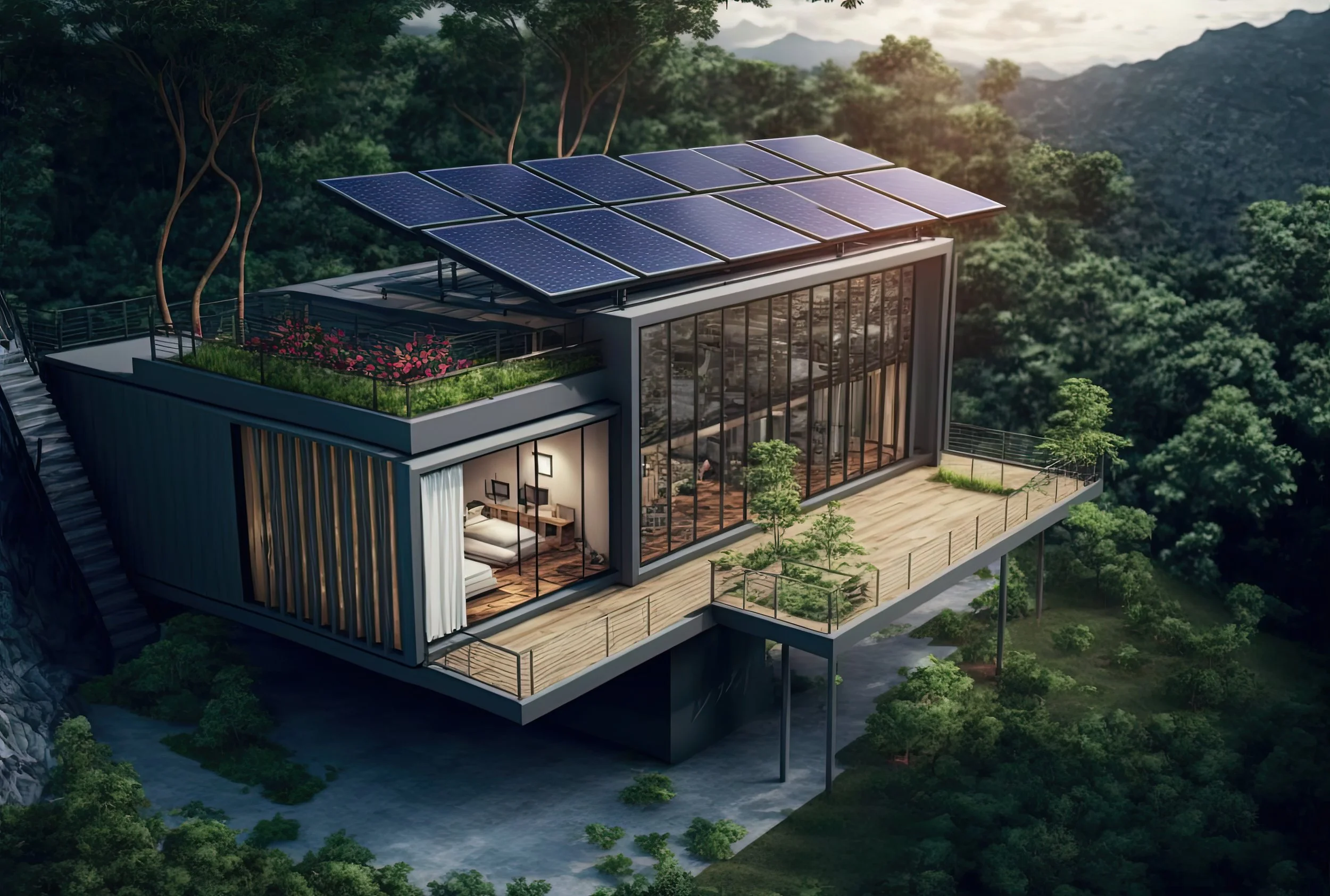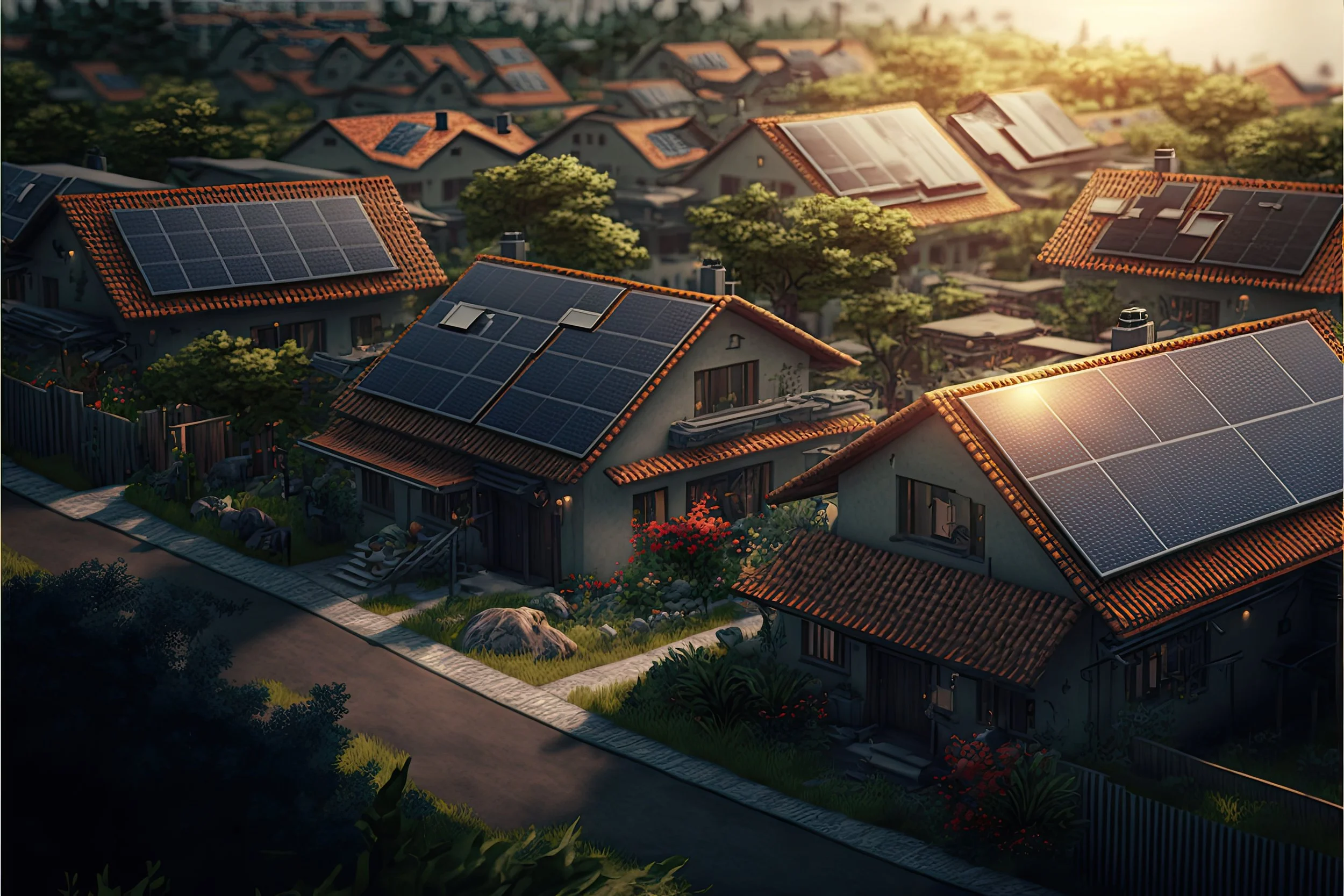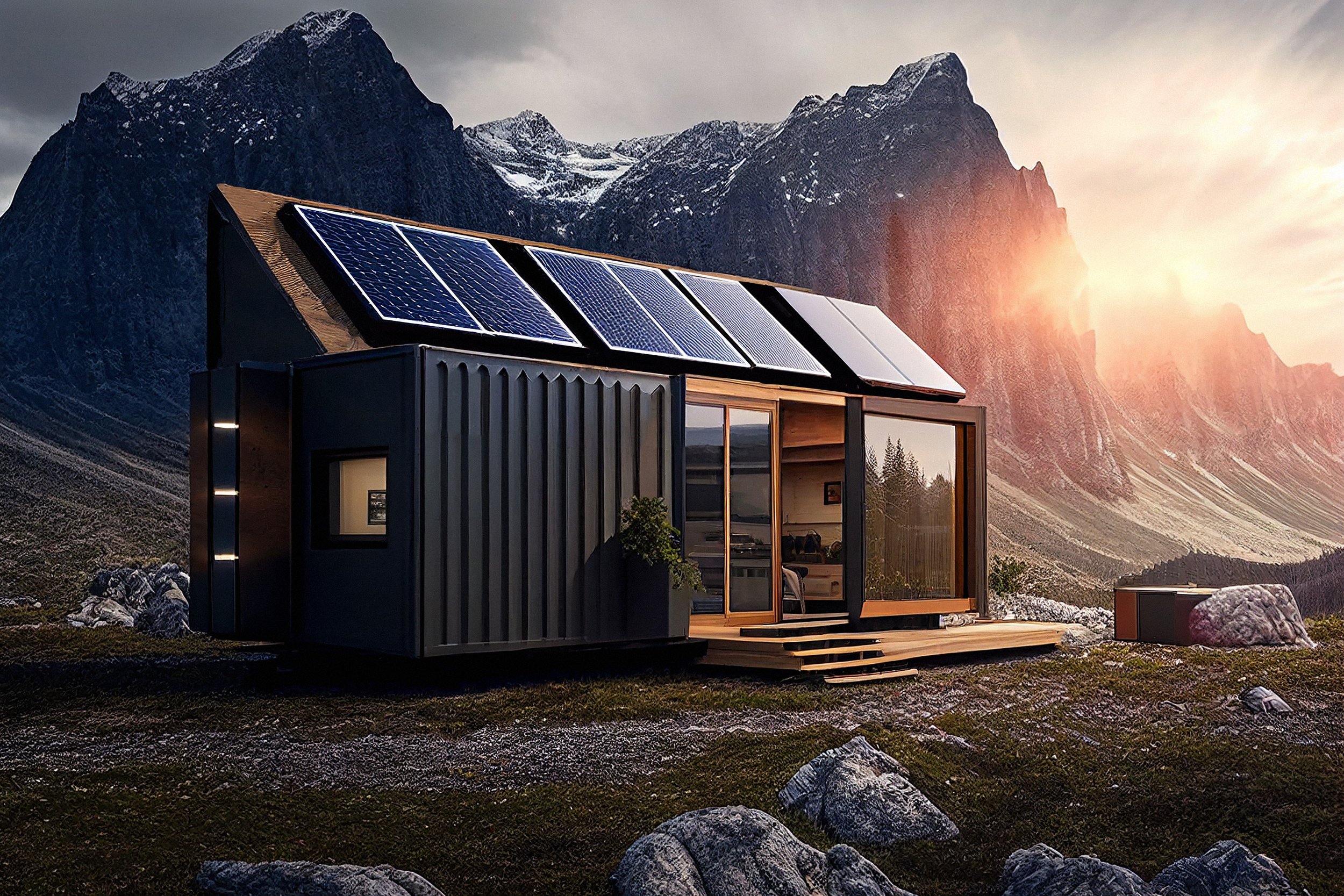
Americans are embracing energy independence and taking control of their power by going solar!
Off grid modern shipping container home at remote location in the Sierra Nevada Mountains.
At SOLR - The Future is Clean, we provide complete solar solutions for all types of residential properties, including single-family homes, duplexes, quadruplexes, apartment buildings, and multifamily dwellings. From custom system design and permitting to seamless installation and ongoing support, our team makes the transition to clean energy simple and efficient for every property type, helping homeowners and property managers maximize savings and sustainability.
What we’ve accomplished so far…
In the United States over 3 million residential solar installations.
Offsetting over 100 million metric tons of CO2 annually makes a difference.
.
Supporting employment for over 250,000 workers in the solar industry.
Six Simple Steps to Your Solar Savings
Step 1: Savings Report
Are you curious about your potential solar savings? Of course, you are! Let's start by explaining how solar works and discussing your unique panel design and timeline. Then, we'll dive into your estimated energy bill, incentives, and 25 years of savings. We believe that knowledge is power, and our goal is to ensure you feel confident and enthusiastic about your transition to solar.
Step 2: Approval Process
Regardless of whether you choose to own or lease a solar system, our team is committed to providing you with the best possible experience. We'll work with you to identify the most suitable product and budget for your needs and guide you through a straightforward application process. We understand that time is precious, and most approvals are issued promptly upon submission. Once approved, we'll guide you through the necessary installation and loan documentation, with most of it completed electronically for your convenience.
Step 3: Sight Survey
With your documents now signed, it's time for your property to be surveyed. A team member will take some photos around your home to document essential details such as your electrical panels, breakers, roof, and attic. We understand your time is valuable, so we'll conduct the survey as efficiently as possible while still being thorough. Please note that an additional survey may be required in some cities, but we'll arrange it at a time that works best for you.
Step 4: Design for Your Approval
After completing the site survey, we'll create a final engineered design for your roof, referred to as a CAD. To ensure a smooth process, the CAD will be made in accordance with the regulations set by your state and local utility company. Upon approval of the CAD, we'll finalize the permitting applications and submit the plans on your behalf.
Step 5: Schedule Installation
Upon receipt of the permits, SOLR will be prepared to install your new solar system. We'll coordinate with you to find a suitable installation date that fits your schedule. And here's the exciting part: most systems are installed within a single day! That's right, you heard it correctly!
Step 6: Activation
Now that SOLR has completed installation, we’ll submit for Permission to Operate or PTO. Bear in mind that approval of PTOs varies by utility company. But we work hard to ensure this last step is approved as quickly as possible so that you can flip the switch and produce your own power.
How Solar Works.
In just one minute, our video will demonstrate how solar energy works, empowering you to make the switch to clean and efficient energy. By reducing your CO2 emissions, you'll not only contribute to a greener planet but also save a significant amount of money.
Current and Cleaner Future Project
FAQs
Do the solar panels need to be maintained?
Solar panels are designed with minimal moving parts, so they do not require regular maintenance. In the unlikely event that a panel malfunction, we got you covered with a 25-year manufacturer’s warranty.
How will solar impact my property values?
It makes sense that potential buyers prefer homes without an electric bill and are willing to pay more for them. Real estate transaction data reveals that homes equipped with solar tend to sell faster and at a premium price compared to similar homes without solar.
What happens if I move?
Your lender can assist in transferring the balance of your solar loan or PPA contract to the new homeowner if you sell your house before it's paid off. Another option is to include the value of the remaining solar agreement in the asking price of your home and use the sale proceeds to settle the system balance.
Will I still have a utility bill?
Utility companies often add minimum fees and surcharges to your bill that are unrelated to your energy usage. In areas where these fixed fees apply, they will appear on your utility bill even if your solar panels generate enough energy to meet your entire consumption.
How long will my installations take?
Before installing a solar energy system, several steps such as obtaining HOA approval, obtaining permits, undergoing inspections, and getting utility approval, may take anywhere from 4 to 8 weeks to complete. The actual installation process, however, can be finished in just a few hours, with larger systems taking up to a few days at most. Typically, installations are completed in less than a day.
Do I need to be home for the installation?
We don't expect you to participate in the physical installation process, but we do request that someone over the age of 18 be present during the installation. To ensure the best installation experience, we kindly ask that any dogs or other pets be kept away from the work area so that the installers can focus on providing you with top-notch service without any distractions.
What happens if my roof leaks?
Roof leaks are an uncommon occurrence, but in the case of a roof leak caused by your solar energy system, our workmanship warranty provides coverage for repairs at no additional cost to you.
Is it possible to add batteries or more panels in the future?
It's usually cheaper to have everything, including batteries and extra panels, installed during the initial setup as this requires less work and eliminates the need to upgrade your inverter later on.
What happens when the power goes out?
As your system is connected to the electrical grid, it features an automatic cutoff switch to prevent electricity from flowing back into the grid, making it safe for electrical workers during power outages. Even with the addition of backup batteries, you'll still be able to power essential appliances and lighting in your home during blackouts.
How do I know if my system is producing power?
Apps now exist to monitor your system's output. Speak with your consultant for more information.
Is my new system covered by my homeowner’s insurance?
The majority of insurance providers have coverage for solar panels that can be easily integrated into your policy. With Solarinsure's supplementary insurance, available at www.solarinsure.com, you can obtain additional protection for both your solar system and battery storage with just a small increase in your monthly premiums.
“All we have to do is to wake up and change.”
—Greta Thunberg



